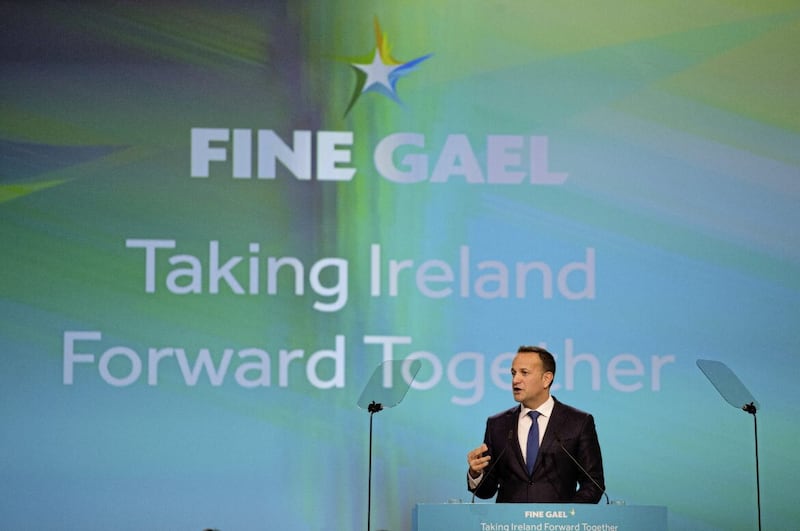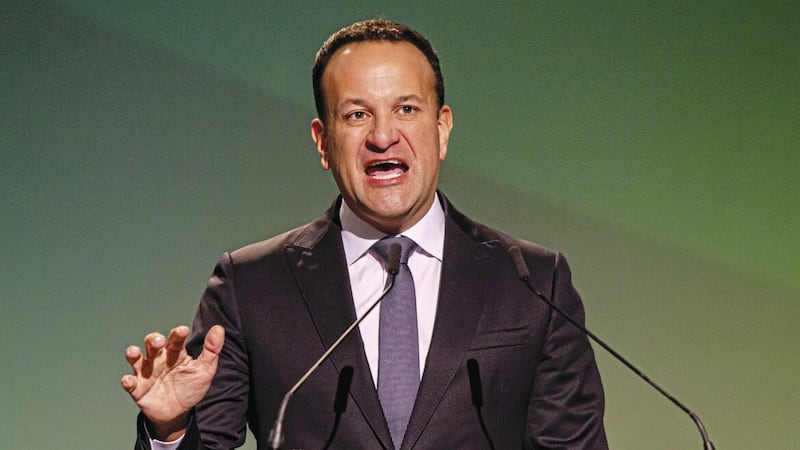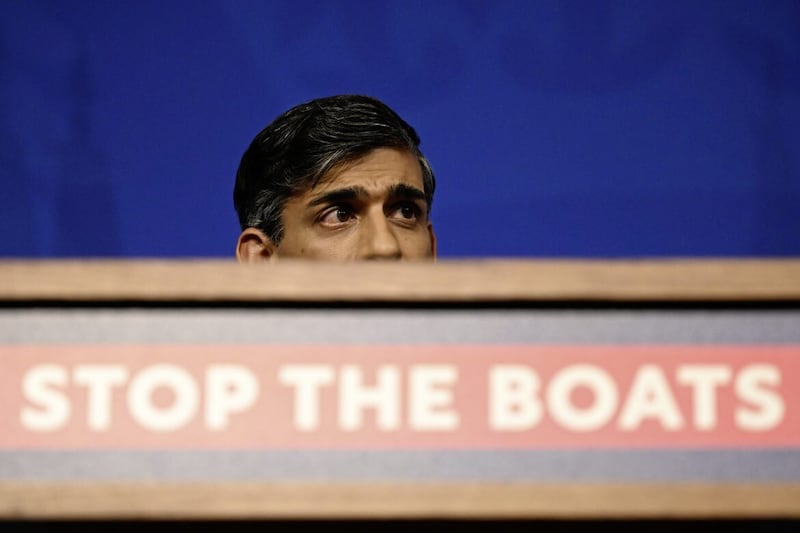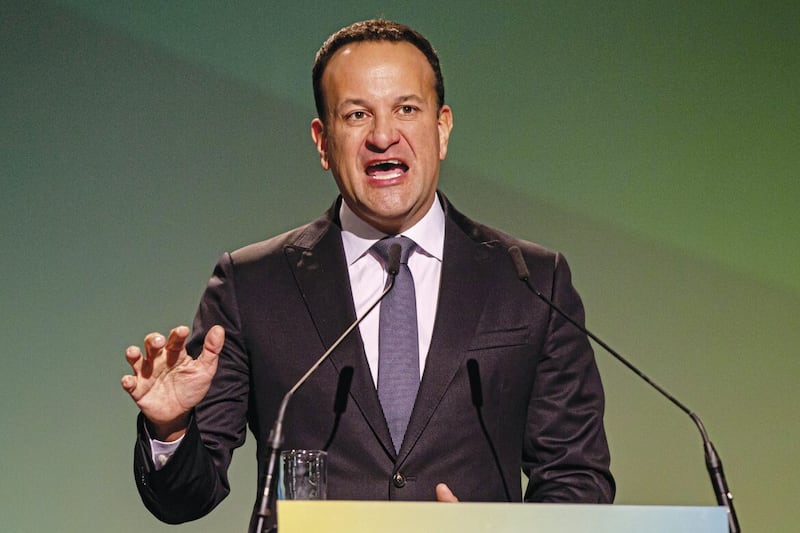THE last of the annual gatherings of the three largest parties on the island takes place this weekend when the Fine Gael National Convention rolls into Maynooth on Saturday.
Unlike the other parties, Fine Gael only holds an ard fheis every two years and in the intervening year, a smaller event without a leader’s speech or debates on a range of policy-related motions is held.
This year’s event focuses on the theme of “Delivering for rural Ireland, farmers, and fishing communities”. There will be a range of discussions on agricultural and rural issues with the purpose of informing party policy and the party’s Agricultural, Food and Rural Development Forum will also hold its AGM.
Read more:
- As Sinn Féin gathers for its ard fheis, engagement and inclusion will be key to plans for Irish unity - Patricia Mac Bride
- Patricia Mac Bride: Is Micheál Martin's Fianna Fáil still interested in reunification?
- Brian Feeney: The Irish government and Fianna Fáil have no policy at all on the north
The second part of the day is a question-and-answer session with Taoiseach Leo Varadkar and other cabinet ministers which is due to be live-streamed. Sessions such as these tend to have carefully curated questions designed to elicit positive talking points about how much more money people have after the last budget or how many more people are now entitled to free GP care as a result of government changes. But perhaps there will be one or two questions about government funding for initiatives or projects in the north.
In July of this year, a Dáil motion pledging to provide 50% of the costs of the estimated €1.6 billion upgrade of the A5 road was passed unanimously. Funding of €44.5m has been pledged for the provision of a teaching and student services building at the Magee campus of the University of Ulster. In June the Irish government announced it would provide €10m to fund 250 student nursing places at Ulster University and Queen's.
Additional funding through the Shared Island unit has been spent on the Narrow Water Bridge project, the upgrades of the Ulster Canal and on research projects. The Peace Plus funding programme has also been topped up by Irish government funds.
Whilst in the grand scheme of things, the contributions to one-off projects may seem like a drop in the ocean in terms of the overall costs of running the place, the fact that such financial support is being doled out on a fairly regular basis is significant. As the lead party in the coalition government, Fine Gael’s support for these projects and others indicates a party at ease with itself over north-south relations in a way that Micheál Martin does not appear to be.
As Taoiseach, Leo Varadkar was the driving force behind getting agreement with the British government over the Northern Ireland Protocol, thus avoiding a hard Brexit which would have been disastrous for the whole island of Ireland. I’m not sure he or Fine Gael picked up many extra votes for that achievement.

But as the party of business, Fine Gael knew that economic stability across the whole island is key. They know that Ireland PLC can only grow if it has sufficient resources to enable it to do so. That means people to work in businesses, it means land for housing and industry and it means investing in cross-border projects in advance of any such referendum.
It comes as no surprise that the IDA has bought almost 150 acres of land for development in County Louth earlier this year. Investment in the A5 will provide a much-needed transport corridor to the north west, adding to the potential to attract investment to that region.
Read more:
- Patricia Mac Bride: Would we be better off in a united Ireland?
- Unionists need to wake up to prospect of Sinn Féin-led government in Dublin - Brian Feeney
- Unionist arguments against united Ireland have now eroded - Cormac Moore
Likewise, Fine Gael’s vote earlier this year to establish branches in the north is about laying the groundwork for future elections to a national, all-island parliament. In line with the current Irish constitution, that election would see around 63 TDs elected from the six counties out of a total of 237. No sensible party would consider going into an election without the infrastructure in place to even contest 26% (or thereabouts) of the seats.
Whilst reunification or border polls may not be the top item in Fine Gael manifesto commitments, it is evident that the long game has already begun for the party and we are likely to witness more of the same before the next Irish general election in 2025.







